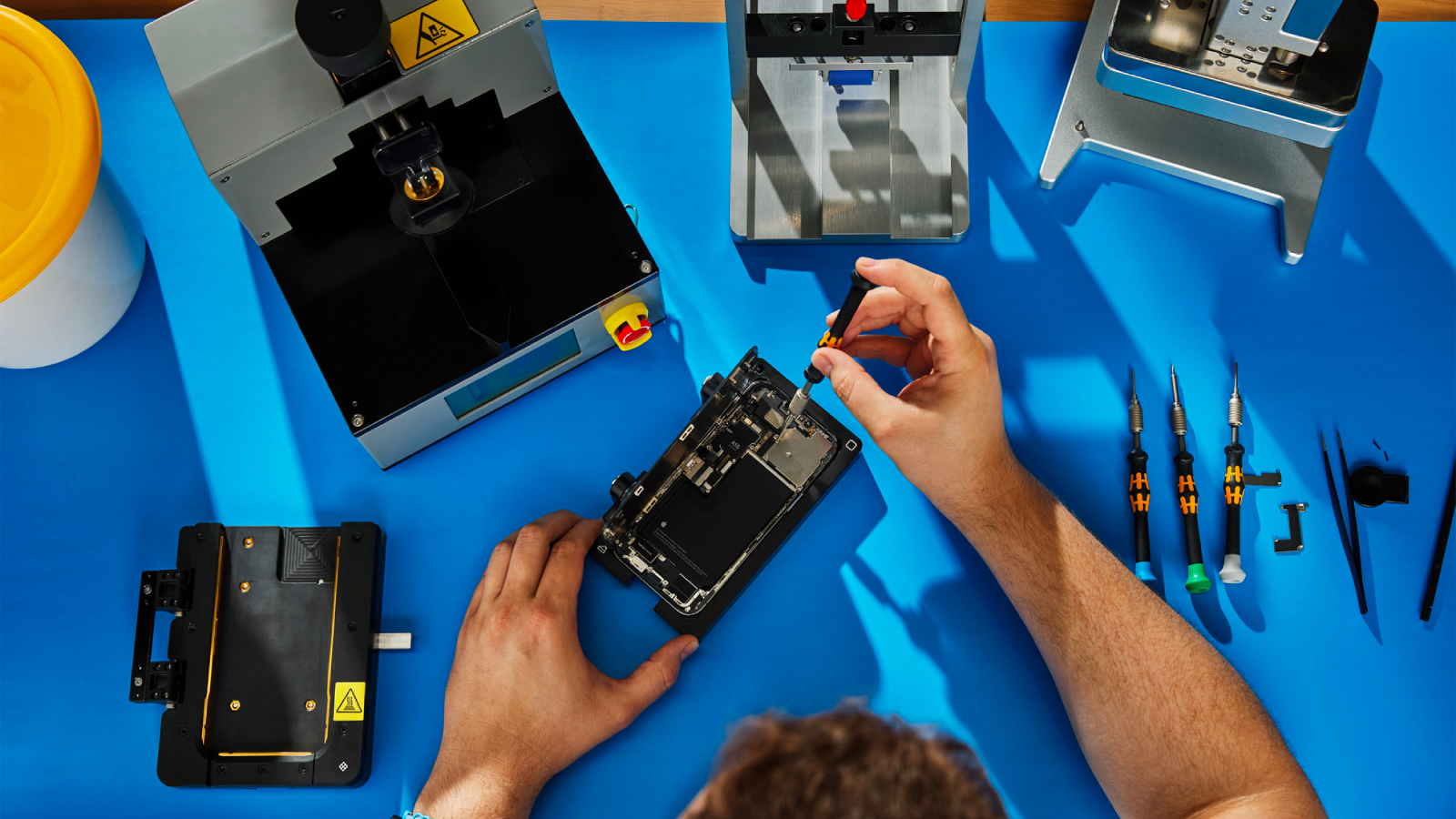France has been investigating Apple since December after the organization Halte à l'Obsolescence Programmée (HOP) accused the company of "planned obsolescence" over serialized repair parts, according to French news agency AFP.

Apple's self-service repair program requires customers to enter a device's serial number when ordering parts for devices like iPhones and Macs, and any parts ordered need to be paired with the same device after installation. HOP said this policy gives Apple the potential to restrict repairs to approved technicians only, and limit the functionality of devices repaired with uncertified parts. The organization added that Apple's self-service repair program is bad for the environment given that Apple ships large and heavy tools to customers.
Do-it-yourself repair website iFixit also expressed disappointment about the serial number requirement when Apple's program launched last year.
"Integrating a serial number check into their checkout process is a dire omen and could allow Apple the power to block even more repairs in the future," said iFixit's Elizabeth Chamberlain. "Building the technology to provision individual repairs easily sets Apple up as the gateway to approve—or deny—any repairs in the future, with parts from any source."
The Paris Public Prosecutor's office is handling the investigation, and has yet to formally accuse Apple of any wrongdoing in relation to HOP's complaint. The organization previously filed a complaint about Apple throttling the maximum performance of some older iPhone models with aging batteries when necessary in order to prevent the devices from unexpectedly shutting down, leading to a €25 million fine in France.
This article, "France Investigating Apple Over Alleged 'Planned Obsolescence' Arising From Serialized Repair Parts" first appeared on MacRumors.com
Discuss this article in our forums
Source: TechRadar

Apple's self-service repair program requires customers to enter a device's serial number when ordering parts for devices like iPhones and Macs, and any parts ordered need to be paired with the same device after installation. HOP said this policy gives Apple the potential to restrict repairs to approved technicians only, and limit the functionality of devices repaired with uncertified parts. The organization added that Apple's self-service repair program is bad for the environment given that Apple ships large and heavy tools to customers.
Do-it-yourself repair website iFixit also expressed disappointment about the serial number requirement when Apple's program launched last year.
"Integrating a serial number check into their checkout process is a dire omen and could allow Apple the power to block even more repairs in the future," said iFixit's Elizabeth Chamberlain. "Building the technology to provision individual repairs easily sets Apple up as the gateway to approve—or deny—any repairs in the future, with parts from any source."
The Paris Public Prosecutor's office is handling the investigation, and has yet to formally accuse Apple of any wrongdoing in relation to HOP's complaint. The organization previously filed a complaint about Apple throttling the maximum performance of some older iPhone models with aging batteries when necessary in order to prevent the devices from unexpectedly shutting down, leading to a €25 million fine in France.
Tag: Self Service Repair
This article, "France Investigating Apple Over Alleged 'Planned Obsolescence' Arising From Serialized Repair Parts" first appeared on MacRumors.com
Discuss this article in our forums
Source: TechRadar